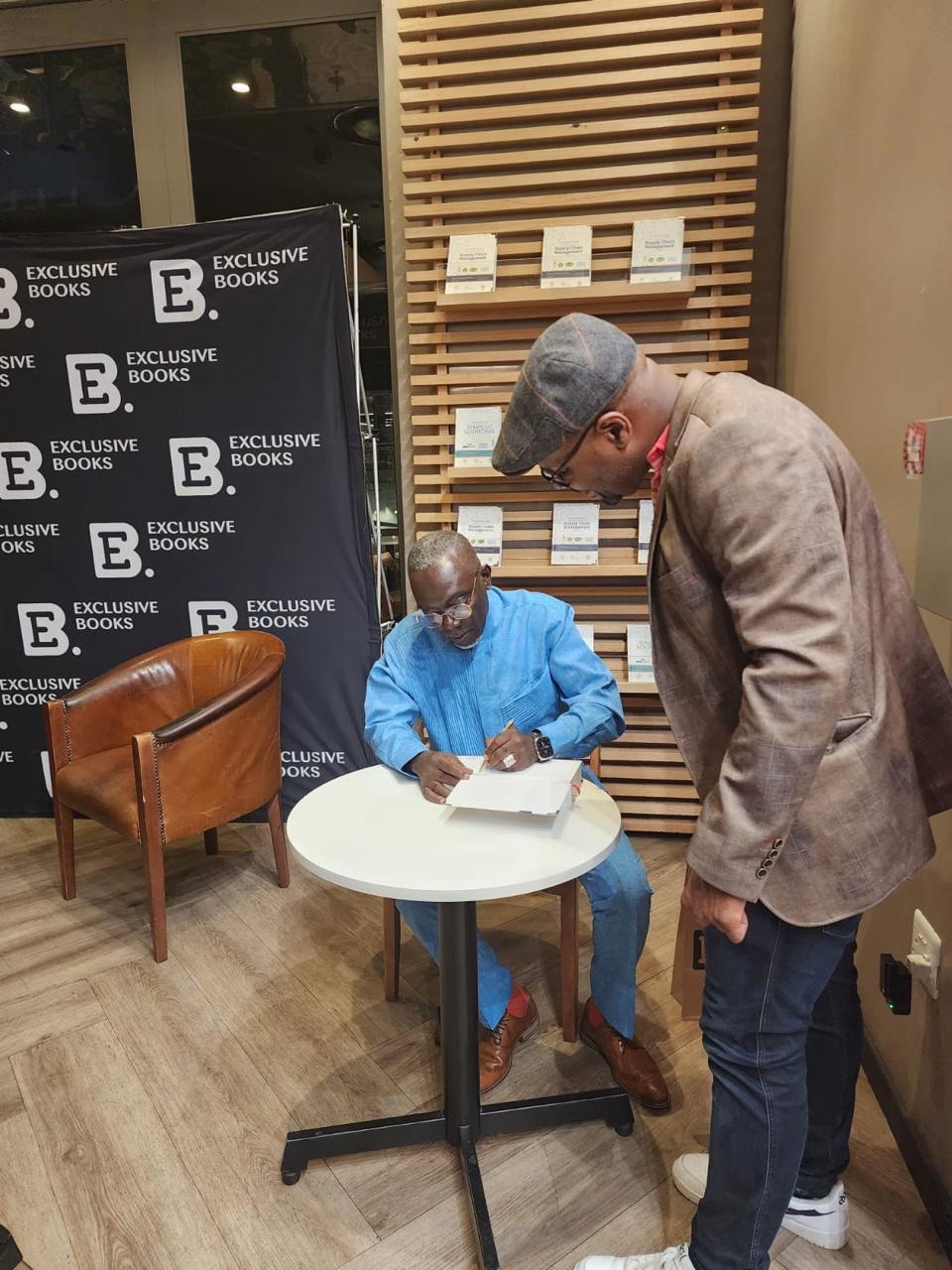Prof Boateng Launches Game-Changing Books to Guide Africa’s Industrial Future

Africa’s industrial ambitions received a significant boost as Professor Douglas Boateng, renowned supply chain governance expert, launched two landmark publications aimed at empowering African businesses and policymakers with strategic tools for industrialisation.
The books, Compendium of Supply Chain Management Terms and Strategic Sourcing and Industrialisation, were officially unveiled at Exclusive Books in Rosebank Mall, Johannesburg, in collaboration with the University of Johannesburg Press (UJ Press), one of the continent’s leading academic publishers.
The event attracted industry leaders, academics, and policymakers who acknowledged the launch as more than a literary milestone, it was positioned as a critical turning point in Africa’s journey toward economic transformation through enhanced supply chain practices.

“These books are tools of economic liberation,” said Prof Boateng. “Without mastering supply chain management and strategic sourcing, Africa cannot fully realise its industrial potential. The private sector must lead with purpose, backed by knowledge.”
Ronald Malazi, Managing Director of Commerce Edge South Africa, emphasized the long-term business implications: “Companies that understand and embed strategic sourcing principles are more resilient, more competitive, and ultimately more sustainable. This knowledge is not academic fluff, it’s foundational for African businesses to compete globally.”
UJ Press manager Wikus van Zyl noted the economic development agenda behind the publications: “This is part of our commitment to shape industrial progress through local research and publishing. We want African industries to rise with African knowledge.”
The launch also signalled the start of a Pan-African Industrialisation and Strategic Sourcing Roadshow, led by Prof Boateng and supported by key industrial players. The campaign will engage public and private sector leaders, entrepreneurs, and young professionals across multiple African countries through forums, lectures, and capacity-building sessions.
The initiative is expected to catalyse much-needed dialogue and investment in supply chain education and localisation of production, a key element in reducing Africa’s overreliance on imports and vulnerability to global shocks.
For businesses, the publications are expected to serve as operational blueprints, helping firms improve procurement systems, reduce costs, and build value chains that are both profitable and sustainable.
With growing calls for intra-African trade and the success of the African Continental Free Trade Area (AfCFTA) hinging on logistics and sourcing capabilities, the timing of the launch is seen by many as strategic.
“This is not just about reading books,” Prof Boateng concluded. “It’s about using knowledge to drive industrial competitiveness, job creation, and economic resilience across Africa.”




